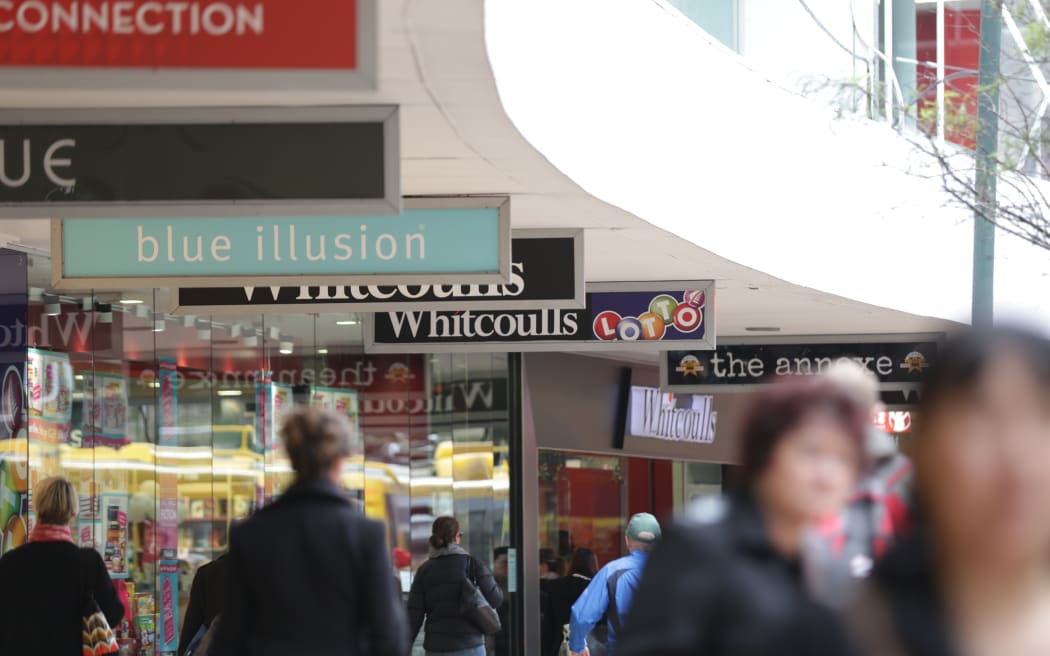If you want to get some shopping done this long weekend, it might pay to plan ahead.
Some stores will be forced to close on certain days, but not all of them - and which are and aren't open could depend on what part of the country you're in.
And if that wasn't enough, the law also restricts what kind of items can be purchased over Easter.
And not all of them are actually public holidays, even if the shops can't open.
Confused? Let's try and fix that.
What's open?
There are just three-and-a-half days a year which the Shop Trading Hours Act 1990 prevents most shopping - Good Friday, Easter Sunday, Christmas Day and the first half of Anzac Day. All are also public holidays, except Easter Sunday (more on that later).
There are three types of exemption to the shop shutdowns:
- tourist resorts such as Taupō and Queenstown (full list here) on Easter Sunday only
- places where the local council has said shops can open (full list here) on Easter Sunday only
- certain kinds of shops (limited to "small grocery shops", service stations, takeaways, bars, cafes, duty-free stores, "shops providing services" (and not selling things), real estate agencies, pharmacies, garden centres (only on Easter Sunday), public transport terminals, souvenir shops and exhibitions "devoted entirely or primarily to agriculture, art, industry and science". Full list here).
Everyone else has to keep the doors shut on Good Friday and Easter Sunday, including department stores and supermarkets.
The stores that can open are only meant to sell items "people can't put off buying until the next day", according to the Ministry of Business, Innovation and Employment (MBIE) website, which singles out baby formula and pet food as items that can't wait.
Stores offering services - such as haircuts or video rentals - cannot sell you things, just offer their services. Souvenir shops are only allowed to sell things "connected to a New Zealand place or New Zealand culture".
A few dozen councils have put in policies allowing most shops to open on Easter Sunday, but the only place in Auckland where it's allowed is on Parnell Road, which has had an exemption since the 1980s.
A notable exception to Parnell Road's freedom is bottle stores - like everywhere else in the country, off-licences are covered by the Sale and Supply of Alcohol Act 2012, which outlaws sales on the three-and-a-half days mentioned above. But even that has an exemption for "grape wine or fruit or vegetable wine made on the premises; or from produce harvested from land on which the premises are situated".
If you forgot to buy alcohol in advance, you can still get some at a restaurant or bar, as long as you're also dining in.
Surcharges
Some places like to add a surcharge over Easter, but there are strict guidelines from the Commerce Commission about how much and when.
"It must be clearly disclosed, for example, by adding information to their website for online sales or placing a sign outside," chair Anna Rawlings said in 2021.
"Customers should be aware that a surcharge will be payable before they make a decision to purchase or engage the service, so they can decide whether to pay the surcharge or go elsewhere," Rawlings said.
"In addition, the reason for any surcharge must be accurately described and must not be capable of misleading consumers. The surcharge should not exceed those costs, and the costs should actually be incurred by the business."
Shop owners typically cite increased wage costs for employees who work on public holidays. So if a cafe hits you with a surcharge on a Saturday or Sunday - which are not public holidays - they could face up to $600,000 in fines under the Fair Trading Act.

If you want to get some shopping done this long weekend, it might pay to plan ahead. Photo: RNZ / Rebekah Parsons-King
Right to a day off
Shops that open illegally can be fined up to $1000 - and that could be you if you're working that day, with MBIE's website saying it could be issued to "any agent, manager, supervisor, person acting or apparently acting in control of the shop".
Good thing then if you don't want to work Easter Sunday. The law allows shop employees to simply say 'no' without having to give a reason. As long as the correct procedures are followed, there's nothing their boss can do about it without risking a personal grievance case.
If you do work Easter Sunday, because it's not a public holiday you are not entitled to extra pay and a day in lieu, unless otherwise arranged with your employer.
Easter Monday is the opposite - it's a public holiday but shops can open as normal, and the employee right to refuse work rule does not apply.
If you're not sure whether you can open your shop or not, MBIE has a handy tool to help figure it out.
Online retailers are not affected.
Some shop owners may choose to take advantage of the forced closure on Good Friday and Easter Sunday and also take Saturday off. Perhaps the only way to be sure you won't be caught short is to get your shopping done on Thursday.

